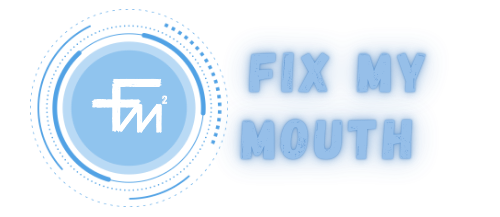Have you ever experience teeth sensitive to cold or hot? Whenever you drink something hot, or eat or drink something cold, you might have experienced this sensitivity. Well, you are not alone in this. According to a survey, around 35% people on earth experience sensitivity at least once in their lifetime.
Table of Contents
What is teeth sensitivity?
Before we jump into the remedies for tooth sensitivity, let us first understand what sensitivity actually is and are our teeth sensitive to cold only?
Sensitivity can be described as a sharp pain like sensation in your teeth whenever your teeth are subject to temperature alterations. The sensation is not exactly pain but it feels as if something is pinching inside your teeth, similar to when an ant bites on your skin.
How teeth become sensitive to cold: The mechanism
Let us now understand how sensitivity actually happens. If someone knows what is the mechanism of sensitivity, they can effectively treat it by themselves, or even if they plan to visit a dentist, you will already know what treatment they want.
In the human body, there are around 7 trillion nerves! Each one of these nerves carries signals from one part of the body to another, the brain. And then there are some other nerves, which carry the message from brain back to the part of body from which it received the message previously.
The nerves in human body are of many types. Let’s not jump into the types of nerves right away as it will become confusing from the point of view of a common person. For now just remember that one of the types of nerves carries the pain signal to the brain and back. Similar nerve types are present inside your teeth, in the pulp. When these nerves are triggered, we get the feeling of pain or sensitivity.
But how exactly are these nerves stimulated since they are enclosed in the pulp of tooth? Whenever we use something hot or cold inside our mouth, then due to temperature changes, the pulp expands or contracts accordingly. This expansion or contraction moves the fluid inside pulp. This movement triggers the nerve endings which ultimately lead to tooth being sensitive to cold or hot.
Teeth sensitive to cold only
Although both extremes of temperature, higher and lower triggers the nerve endings, it is the lower temperature which triggers it more. This is because pulp is very sensitive especially to lower temperatures. So, when we eat or drink something cold, nerves get triggered to a greater extent as compared to when we eat or drink something hot.
Why teeth become sensitive to cold: The reasons
Now that we have understood the mechanism of teeth sensitivity to cold, you might be wondering that why is it that some people feel sensitivity and others don’t? Well, there are certain factors which come into play. Combining these reasons for teeth sensitivity to cold with the mechanism of action, you will understand why teeth become sensitive to cold or hot.
1. Enamel erosion
Enamel is the protective layer on your teeth which protects them from external harmful stimuli. But our daily activities like acidic foods, beverages and poor oral hygiene disrupt this layer of enamel, which expose the underlying dentin and sometimes pulp too! This ultimately leads to teeth sensitive to cold or hot.
2. Gum recession
If you look at your teeth inside your mouth, you will notice that below the teeth is something pink in color. This pinkish structure are the gums or gingiva. With time, these gums recede and expose the underlying root. The root portion is not covered with enamel because of which receding gums lead to teeth sensitive to cold or hot.
3. Tooth decay
Caries on your teeth lead to the enamel layer breaking down. This enamel break down again exposes the underlying dentin and pulp, leading to teeth sensitive to cold and hot.
4. Cracked teeth
Cracked teeth are those which have crack lines on them. Imagine a glass slab which has cracks on it, but is not yet broken. Now what would happen when you pour water on it? The water will start to fall down from the cracks.
The cracked teeth have cracks in the enamel layer. So, when something cold or hot is introduced in the mouth, if it is in liquid form, it flows from the cracks. Or, if it is in solid form, it causes the temperature of saliva to change and that saliva then flows down the cracks, triggering the nerves and leading to teeth sensitive to cold or hot temperatures.
5. Worn fillings
Many patients come with the complain that they got filling in their teeth and after that they are feeling sensitivity. They start to blame the dentist whom they got feeling from right away.
It is not always the dentist who is to be blamed. The filling might be as perfect as it could ever be, but if you are not taking care of your oral hygiene, there would be no benefit of that filling. And also there is a life of every filling. It starts to worn out after some time. This also can be the reason of teeth sensitive to cold or hot. So make sure to pay a visit to your dentist every 6 months for routine check ups.
6. Teeth grinding (bruxism)
Some people have a habit of grinding their teeth very often. Others do this when they feel nervous or anxious. Whatever the reason for this grinding (bruxism) is, it leads to the wear down of enamel. This enamel wear down will lead to teeth sensitive to cold and hot.
7. Post dental procedures
Teeth sensitivity can occur after some dental procedures like filling, scaling, teeth whitening, bleaching etc. But this sensitivity is short term, and the feeling should go away soon. If it doesn’t, you should contact your dentist as soon as possible.
8. Gum disease
Just like gum recession, there are some diseases of the gum diseases which cause gums to recede. These receding gums exposes the roots, which are not covered by the protective layer of enamel. It then causes teeth sensitivity to cold or hot.
9. Aggressive brushing
It is advisable that you brush your teeth lightly. When you brush aggressively, you are actually doing more harm than good. By brushing vigorously, the enamel layer gets disturbed, leading to teeth sensitivity to cold or hot.
10. Acidic mouthwash
Just like acidic beverages, acidic mouthwash also harm the teeth in a similar way. They also cause slow wearing down of the protective layer of enamel. This is why you should only use the mouthwashes according to the prescriber’s instructions and should also always read the ingredients in that mouthwash so you may know if there is anything to which you are allergic or not.
Treatment options for teeth sensitive to cold
Following is a list of treatment options available to treat teeth that are sensitive to cold or hot. Keep in mind that not all treatment options are for every one. The treatment options depends on the reason of your sensitivity, which varies patient to patient.
1. Dietary changes
As mentioned in the section of reasons of sensitivity, diet influences whether or not you will have sensitive teeth. So by modifying your diet into a healthy one and by avoiding things like acidic foods and beverages, one can avoid sensitivity.
2. Bonding or sealants
If you have receding gums due to any reason, this treatment option is for you.
By applying bonding agent or sealants on the exposed roots, they act as a barrier which will ultimately prevent teeth sensitivity to cold or hot.
3. Dental restorations
Damaged teeth like those due to caries, or faulty previous restoration can be repaired by dental restorations like fillings, crowns, inlays etc.
4. Fluoride treatment
Fluoride treatment in the dental office in the form of varnish, or at home in the form of a fluoride tooth paste are helpful in providing strength to the teeth. This is because of the fact that fluoride is an essential element for enamel and enamel is essential for the protection of teeth. So, fluoride therapy helps treat teeth sensitive to cold or hot.
5. Desensitizing toothpaste
There are some specially formulated toothpastes available in the market nowadays which are desensitizing in nature. These toothpastes block the travel of sensation from tooth surface to the nerve. Since the nerve is not triggered, or if it is triggered then there is no travelling of impulse, which does not cause sensitivity of teeth.
6. Mouthguard for bruxism
If you are a teeth grinder, the first thing you should be doing is to try to break the habit. If that is difficult for you don’t worry we still got you covered.
There is an appliance known as nightguard which is especially made for bruxers. It is made of transparent acrylic which fits on your teeth. So now when you try to grind your teeth, you are actually grinding the nightguard and your teeth are safe.
This is basically for those who visit the dentists’ office early and have not yet experienced the symptoms of teeth sensitivity, as this nightguard therapy prevents it from happening. Once sensitivity has started, other treatment options should be considered.
7. Changing your toothbrush
Did you know that there are types in toothbrushes too! All of them contain bristles, but some have hard bristles, others have soft.
To prevent sensitivity, you should switch to one with softer bristles, if currently you are using the hard one. Check the packing of your toothbrush next time you go to buy one.
8. Proper brushing technique
Just like the type of toothbrush you use, the brushing technique that you use also decides whether you will experience sensitivity in your teeth or not.
The best proven technique is to use gentle, circular motions instead of using the aggressive method of brushing.
9. Surgery (gum grafting)
If your gum recession is so severe, that bonding agents or sealants are not able to cover the exposed roots, then comes in the surgical treatment. Science has advanced so much nowadays that there is a surgical treatment for almost every anomaly out there.
By having gum grafting surgery, your gums can return back to the original place, and cover the exposed roots again.
10. Professional care
Regular dental check ups and professional cleaning once every 6 months can help you maintain your oral hygiene and protect your teeth from experiencing sensitivity to cold or hot. So make sure to pay your dentist a visit often.
Summary
Now you know what are the causes of tooth sensitivity, how it happens, what treatment options are available for this, and how can you prevent it.
Be sure to make good use of this knowledge, and to properly take care of your teeth so that you do not experience any discomfort like sensitivity because although it is not exactly pain, but it is painful!




